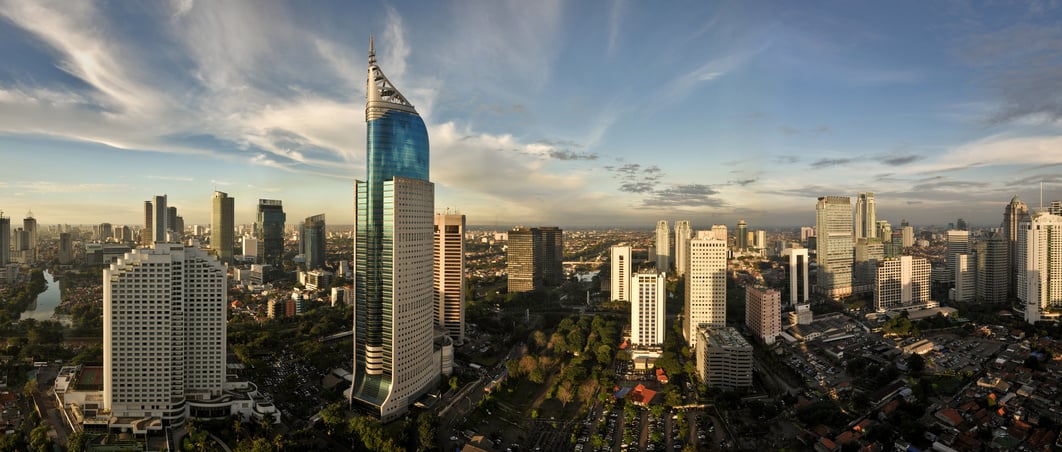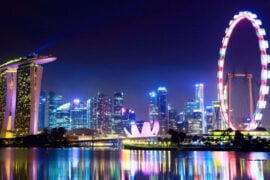In brief
Government Regulation No. 28 of 2021 on Organization of Industry Sector (“GR 28/2021“) is consistent with the changes set out by Article 44 of Law No. 11 of 2020 on Job Creation (“Job Creation Law“). The implementing regulation mainly establishes a new regime of licensing and a new legal framework for future incentives related to the procurement of raw and supporting materials.
It can be seen from GR 28/2021 that the government is trying to further simplify the licensing process and integrate the industries needs as well as the public’s involvement and electronic supervision through the its online system.
Key takeaways
GR 28/2021 stipulates as follows:
- Raw and supporting materials
To maintain the continuity of the production process and/or industrial development, the central government and local government provide facilities to make it easier to obtain raw materials or supporting materials.
The facilities are given through ensuring: (i) the availability of raw and/or supporting materials from outside of Indonesia and (ii) the distribution of raw and/or supporting materials in Indonesia. The government will ensure the availability by prohibiting and restricting export, and easing the import process of raw and/or supporting materials. The easing of import process includes:
- granting of fiscal facilities
- granting of non-fiscal facilities
- fulfilment of import quota as needed
There was no provision about this in the previous regulation. The government now seems to give more attention to the supply of raw and supporting materials for industries.
- Supervision of the assessment board
Planning, cultivating, developing and supervising industrial standardization should be regulated and carried out by the Minister of Industry. Industrial standardization is carried out in the form of Indonesian National Standard (Standar Nasional Indonesia – SNI), technical specifications, and/or manual books. An industrial standardization assessment is carried out by the assessment board that has been accredited in accordance with its scope and appointed by the Minister of Industry. The assessment board consists of: (a) a product certification board, (b) testing laboratories and (c) an inspection board.
- Strategic industries
Strategic industries consists of industries that: (a) fulfil needs that are important for the welfare of the people or control the lives of many people, (b) increase or generate added value to strategic natural resources, (c) have a connection with the interests of national defense and security.
The existence of strategic industries in the development of national industries is increasingly important, but in reality, strategic industries have not played a significant role. This is due to several factors, including the relatively large investment required, high business risks, relatively small profit margins, and high technology requirements. The private sector cannot be fully expected to play a role in the development of strategic industries, considering the aforementioned factors, so the involvement and control of the government is required to accelerate development.
- Public’s involvement in industrial development
Members of the public who (i) are Indonesian citizens, (ii) have a scientific background in the industrial sector, and (iii) have expertise in the field of industry can participate in the planning, implementation and supervision of industrial development.
Suggestions, opinions, proposals, delivery of information, and/ or reports by the public in the context of industrial development can be submitted to the central or local government electronically through its online system (SIINas).
- Supervision and control of industries and industrial zones
For the implementation of industrial development, the government pays special attention to the supervision and control of industrial business activities and industrial area business activities to determine the fulfilment and compliance of industrial companies and industrial area companies in implementing regulations in the industrial sector.
The Minister of Industry may appoint an existing technical unit or form a new technical unit to supervise and control industrial and industrial zone business activities.
Sanctions
Industrial companies and industrial area companies that: (i) use workforces that do not fulfil the national standard, (ii) do not submit their data accurately, completely, and on time, (iii) do not fulfil the green industry standards, and (iv) do not fulfil the obligation to ensure safety, may be imposed with administrative sanctions in the form of:
- written notice
- administrative fine
- temporary closure
- freezing of business license
- revocation of business license
Industrial area companies that do not fulfil the industrial zone standards may be imposed with administrative sanctions in the form of written notice and/or administrative fine.
Industrial companies and industrial area companies that: (i) do not carry out energy management based on the prevailing provisions, (ii) do not carry out water management based on the prevailing provisions, (iii) do not fulfil the business licensing provisions, may be imposed with administrative sanctions in the form of:
- written notice
- administrative fine
- temporary closure




